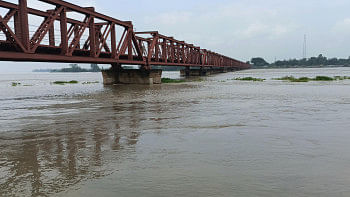Ship recycling in Bangladesh needs greater safety efforts

A recent tragedy in Bangladesh's ship recycling industry has once again highlighted the persistent challenges related to worker safety, competent management, and effective regulatory enforcement. Twelve workers were injured in a flash fire or explosion at a ship recycling yard. Nine of the workers suffered serious burns, of them two succumbed to their injuries and seven others are in critical condition. This devastating accident has cast a shadow over the industry and saddened all stakeholders involved.
While there have been positive steps toward adopting greener and more sustainable practices, such as the establishment of five "green yards" complying with the Hong Kong International Convention for the Safe and Environmentally Sound Recycling of Ships, this incident underscores how much progress is still needed. Structural improvements alone are not enough to ensure safety in daily operations. What is missing is a consistent focus on basic safety techniques and practices, which are lacking in most of the yards.
Despite the industry's critical role in providing raw materials, employment, and revenue, the working conditions in many ship recycling yards remain hazardous. Issues such as oil spills, inadequate safety measures, and insufficient worker training pose significant risks. A lack of competent management and oversight further exacerbates these problems. The tragic loss of 142 workers over the past decade reflects a persistent culture of neglect, even though accident rates have decreased in recent years.
Since being officially declared an "industry" in 2011, the shipbreaking sector has made significant economic contributions, importing 2-2.5 million tons of scrap steel annually, according to a presentation by the Ministry of Industries. However, many yards—especially those not compliant with the Hong Kong Convention—continue to use unsafe methods. The enactment of the Bangladesh Ship Recycling Act in 2018 and the ratification of the Hong Kong Convention in 2023 represent progress, but the recent tragedy demonstrates that legislation alone is not enough. Without rigorous enforcement and accountability, safety will remain elusive.
As Bangladesh handles the majority of end-of-life vessels in South Asia, the global shipping industry is closely watching its ability to responsibly manage the global volume of ship recycling. To claim the title of a safe and environmentally sound recycler, Bangladesh must address several critical issues including developing yards that meet all regulatory requirements, implementing effective downstream waste management solutions and ensuring that workers are well-trained and proactive about health, safety, and environmental issues. Besides, ships should maintain an inventory of hazardous materials to manage their disposal safely during recycling. Proper documentation of compliance activities must also be maintained for audits and inspections. Finally, all stakeholders must act transparently and be held accountable for their responsibilities.
At the same time, the role of international shipping companies in ensuring responsible ship recycling must be scrutinised. Bangladesh cannot become a dumping ground for hazardous waste. Global stakeholders must share responsibility for ensuring safer, more environmentally sound practices. Bangladesh's efforts to align with the Basel Convention on the Control of Transboundary Movements of Hazardous Wastes and their Disposal and formulate hazardous waste management rules are steps in the right direction. The potential support from Japan for establishing Treatment Storage Disposal Facilities (TSDF) further demonstrates commitment. However, these initiatives alone will not be enough to guarantee safety in all ship recycling yards.
While the industry faces financial challenges, particularly due to declining ship imports and economic uncertainty, safety and environmental regulations must remain a priority. This recent tragedy should serve as a wake-up call for the entire industry. Without a thorough investigation and the implementation of corrective measures, the cycle of accidents will continue, claiming more lives and perpetuating a culture of impunity. All stakeholders—government officials, yard owners, consultants, and safety agencies—must take immediate action to ensure a safe working environment for all workers in Bangladesh's ship recycling industry.
Muhammed Ali Shahin is a human rights activist working with Young Power in Social Action (YPSA).
Views expressed in this article are the author's own.
Follow The Daily Star Opinion on Facebook for the latest opinions, commentaries and analyses by experts and professionals. To contribute your article or letter to The Daily Star Opinion, see our guidelines for submission.

 For all latest news, follow The Daily Star's Google News channel.
For all latest news, follow The Daily Star's Google News channel. 






Comments